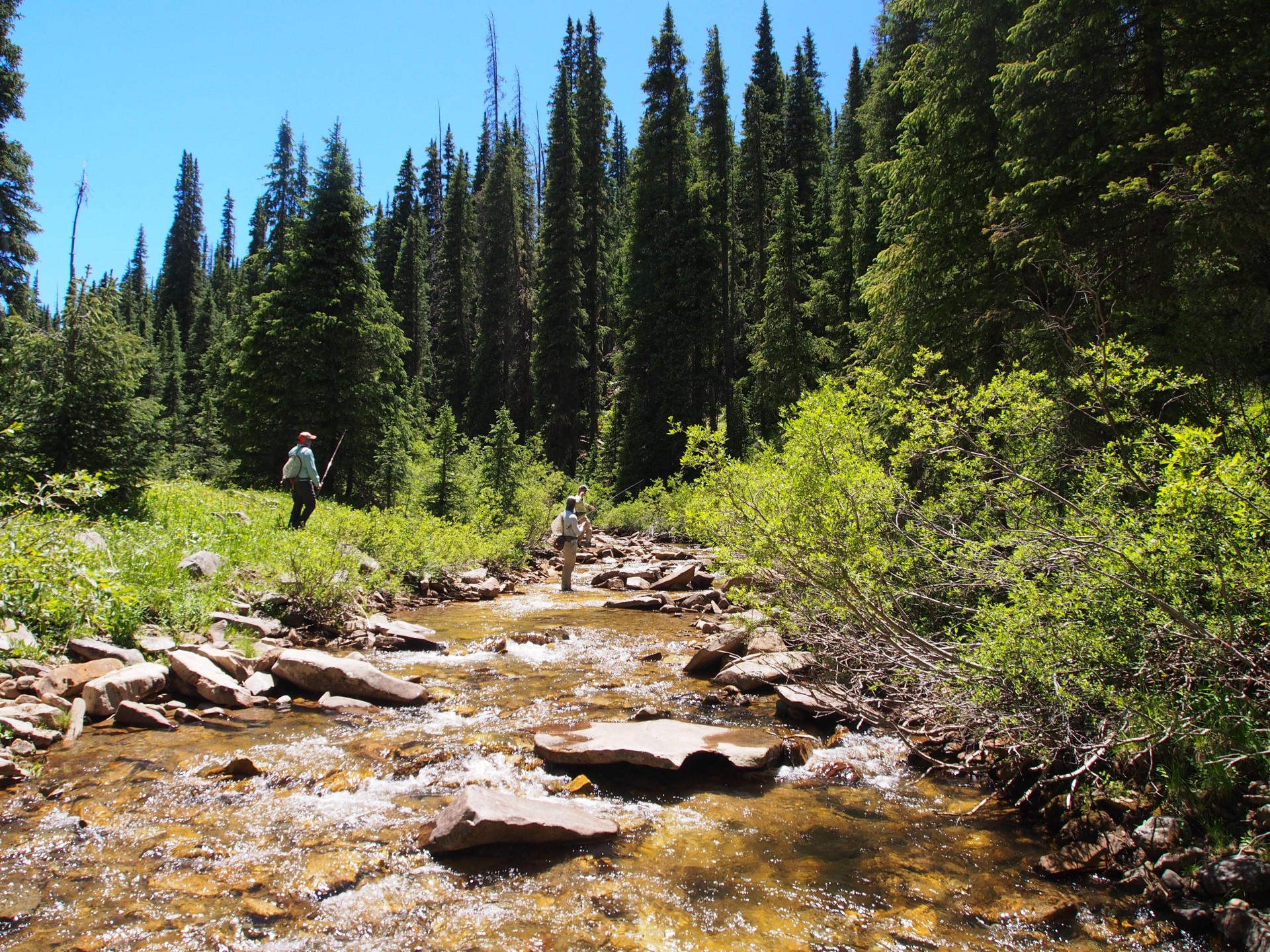- Home
- About
Catch50
The Beginning
Dad and I reached the Thomasville pond, rods in hand, feeling a light breeze across our faces. Today would be the day. I yearned to feel the rush of the line through my fingers and the bend of the rod with my first bass, fly embedded in its lip. We began to cast and settled in, laying out the fly across the calm pond, breaking the glass as the line hit the clean, clear water. This sensation puts one in another world of peace and serenity. But as I felt the tension of the line, and set the hook, the excitement of the fight began. What felt like Moby Dick on my lightweight fly rod turned out to be a three pound bass, my first fish on the fly. There was no going back; I was hooked. With a giant smile, I turned to my dad and told him I was ready for a tarpon. He chuckled and told me there were a few things I needed to do before then.
Through the next few years, I continued with the life long sport and enjoyed learning more about fly fishing until I finally realized my dream of catching a tarpon when I was 13.
It was that fishing trip with my dad that inspired the loftiest goal I’ve ever set for myself. I have recently created a new fly fishing goal: to catch a fish on the fly in all 50 states. But my Catch50 quest isn’t just for me. Through its site, and with the help of my good friends at Orvis, I hope to display to youth and adults alike that fly fishing is a sport for everyone, and also bring awareness to conservation issues affecting this wonderful sport.
I have come to understand that many are hesitant to try fly fishing due to the perception that is a difficult, expensive sport that can be done in only a few places. I hope to show my readers that it is not difficult, can be made inexpensive, and can be done anywhere that conventional fishing is practiced and more. You don’t need much. Fly fishing creates a truly unique way to experience the outdoors, and anyone who has an interest can and should get to try it.
In addition, during my journey across the 50 states, I have learned about many of the conservation issues fly fishing faces. If we don’t take care of our waters and the environment, our fish and the destinations we love could eventually be destroyed. There are so many things we can do to help save our rivers, lakes, and oceans to preserve their wildlife. I’m excited to know more about how we can help, and I will share these ideas through my blog.
I hope you will enjoy stories from my excursion across our great country, gain new perspectives about the sport, and learn a few things along the way.
- Christopher Watt
About Christopher Watt
Christopher Watt is passionate about sharing his love of fly fishing with others, particularly youth and young adults.
He first dreamed up his goal to “catch a fish on the fly in all 50 states before college” at the age of 14, the summer before his freshman year of high school. The mission of his Catch50 project has been to promote fly fishing and exhibit to young anglers the accessibility of the sport across the U.S., while also highlighting the conservation issues affecting America’s fisheries. Many people are intimidated by flyfishing and believe it can only be pursued in “blue ribbon” waters, but a fish can be caught on a fly wherever they are found. He successfully completed the goal in the summer of 2017.
Christopher is a 2021 graduate of Washington and Lee University, where he studied Economics, Environmental Studies, and Poverty Studies. While in college, he was a leader in the university’s Outing Club and taught fly casting, led trail runs, and guided first year students on treks along the Appalachian Trail. He has a strong interest in conservation, especially related to fisheries management, habitat protection, and sustainable development. He spent his college summers working on the Nature Conservancy of Idaho’s Flat Ranch Nature Preserve in Island Park, Idaho. He also served as the Socioeconomic Metrics Project intern for Indifly, a non-governmental organization with the mission of using fly fishing as a tool for transforming the lives of Indigenous Peoples and protecting valued environments, where he developed a survey for evaluating the organization’s impacts across its various projects. After graduation, he assisted the Bonefish and Tarpon Trust on projects within their Florida Keys Initiative.
Christopher has been awarded a Fulbright Student Research Grant to learn about the cultural and livelihood impacts of small-scale fishing in Vanuatu, an island nation in the South Pacific.



